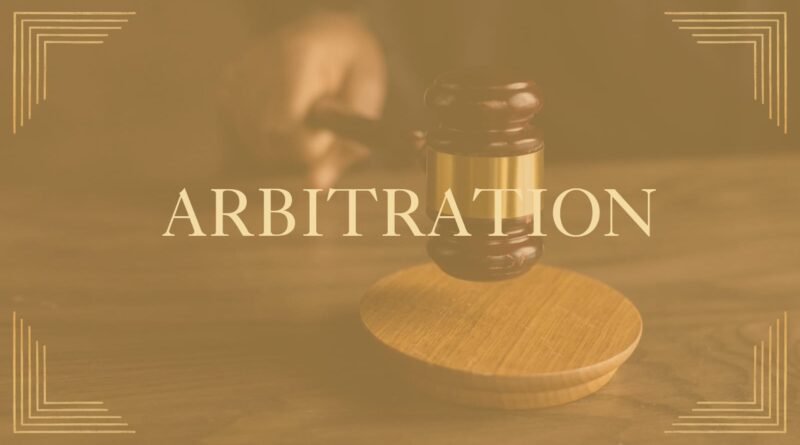Arbitral Award based on Draft Supplemental Agreement
Appellant – developer had entered into Development Agreement & MOU dated 19.4.1995, for development of the land of the Respondents at Andheri Kurla Road. Clause 33 provided for arbitration clause.
In October, 1999, the parties agreed to execute draft Supplemental Agreement in view of change in the municipal law. In November, 2000, the draft Supplemental Agreement was sent by the Appellant to the Respondents. However, in November, 2001, the Respondents repudiated the said draft agreement.
On 14.2.2002, the appellant invoked arbitration as per clause 33 of the DA.
Four different letters of the Solicitors of the Appellant were sent to the Arbitrator without giving reference to the supplemental agreement. However, the appellant annexed the draft agreement with its letter dated 14.2.2002 sent to the Arbitrator.
On 23.7.2012, the Arbitrator rejected the application under Section 16 filed by the Respondents challenging the jurisdiction to entertain and try claims for specific performance of purported supplementary agreement.
The Arbitral Award dated 14.2.2017.
However, by the judgment dated 28.1.2020, the learned Single Judge set-aside the arbitral award. However, the appellant had enclosed the draft agreement with its letter dated 14.2.2002.
HELD that the entire controversy was around the execution and the existence of the draft supplemental agreement which was annexed with the letter dated 14.2.2002 of the appellant sent to the Arbitrator. The finding that draft agreement was a contract for specific performance itself suffers from patent illegality and finding of fact based on no evidence.
The Arbitral Award contains sweeping findings ex facie contrary to the record and contrary to the other portions of the very same Arbitral Award. The learned Single Judge found that the conclusion of the Arbitrator that the draft agreement was entered into and indeed the letter dated 14.2.2002 was delivered are both ex facie inconsistent with the pleadings and the material on record.
Limitation – Article 54 of Schedule to the Limitation Act, 1963, applies to any claim for specific performance and period of three commencing from the date fixed for the performance. According to the appellant-claimant, in 1995 the respondents refused to perform their part of the contract by not allowing it to enter into the subject property.
The appellant had knowledge of the breach of the Development Agreement in 1995 itself and therefore, arbitration initiated in 2002 is barred by limitation.
Judgment dated 25.6.2024 of the Division Bench of the Bombay High Court in Commercial Appeal NO.90 of 2020 in Commercial Arbitration Petition No.812 of 2019 of Ivory Properties & Hotels Private Limited Vs. Vasantben Ramniklal Bhuta and others with connected matters.




